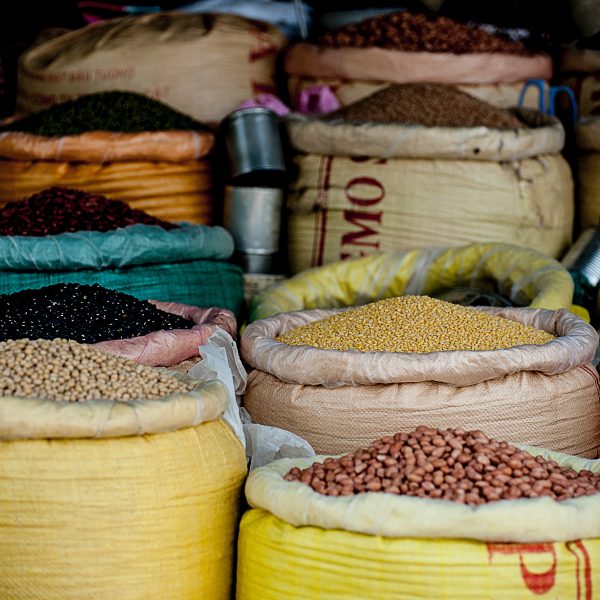Food Allergy Awareness Week starts 26 May – are you ready?

One in ten Australian children experience allergic reactions to food, with signs and symptoms varying from mild to severe. Early childhood education and care (ECEC) settings are frequently caught in a struggle to maintain oversight over children and allergies, sadly, sometimes with dire consequences, making promotion of Food Allergy Awareness Week of particular importance to the sector.
What are food allergies?
A food allergy is an immune system response to a food protein that the body mistakenly believes is harmful. When the individual eats food containing that protein, the immune system releases massive amounts of chemicals, triggering symptoms that can affect a person’s breathing, gastrointestinal tract, skin and/or heart.
Signs and symptoms of food allergy can be mild, moderate or severe. An allergic reaction can include; hives, swelling of the lips, face and eyes, abdominal pain, vomiting, swelling of the tongue, swelling of the throat, breathing difficulty, persistent dizziness and/collapse. If left untreated, signs and symptoms related to breathing and heart/blood pressure can be fatal.
What is anaphylaxis?
Food allergies can be severe, causing potentially life-threatening reactions known as anaphylaxis. Anaphylaxis must be treated as a medical emergency, requiring immediate treatment and urgent medical attention.
Anaphylaxis is a generalised allergic reaction that often involves more than one body system (e.g. skin, respiratory, gastro-intestinal and cardiovascular). A severe allergic reaction or anaphylaxis always involves the respiratory and/or the cardiovascular system. An allergic reaction usually occurs within 20 minutes to two hours of eating even a small amount of the food, and can rapidly become life threatening.
Prevalence of food allergies
Food allergy now affects one in 10 infants and about two in 100 adults in Australia.
The severity of an allergic reaction can be unpredictable. Someone who has previously had a severe reaction to a particular food is more likely to have another severe reaction to that food. Someone who has a previous mild reaction to a food is less likely to have a severe reaction but the possibility is still there. Someone who is allergic to a food but has not been prescribed an adrenaline (epinephrine) autoinjector still needs to do their best to avoid the food as reactions do sometimes become more severe.
Common allergens
There are more than 170 foods known to have triggered severe allergic reactions. The most common triggers, causing 90 per cent of allergic reactions in Australians are:
- Egg
- Cow’s milk
- Peanut
- Tree nuts (such as cashew and almond)
- Sesame
- Soy
- Wheat
- Fish
- Shellfish.
Some lesser known triggers also include kiwi fruit, banana, chicken, mustard and celery. Children often outgrow cow’s milk, egg, soy and wheat allergies during childhood. Common life-long allergies include peanuts, tree nuts, sesame and seafood.
It is important to understand that in some people, even very small amounts of food can cause a life-threatening allergic reaction/anaphylaxis. Some extremely sensitive individuals can react to just the smell of particular foods being cooked (e.g. fish) or even kissing someone who has eaten the food they’re allergic to.
Consequences and cure
It is thought that approximately 10 people die from anaphylaxis each year in Australia and some of these reactions are triggered by food. Deaths from anaphylaxis are currently not reportable and we have no way of capturing true figures of deaths and near misses.
Currently, there is no cure for food allergy. Avoidance of the food is the only way to prevent a reaction. When a severe reaction does occur, adrenaline (epinephrine) is the first line treatment for severe allergic reactions and can be administered via an adrenaline (epinephrine) autoinjector called the EpiPen®. EpiPen® is currently the only available adrenaline autoinjector in Australia.
How can ECEC services raise allergy awareness in their community?
There are a variety of ways that ECEC services can support in raising allergy awareness in their community, including:
- Fundraising for food allergy education and research – send funds here.
- Educate staff and others by sharing Food Allergy Week content with friends, family members and workplaces through social media, using the #allergyaware hashtag.
- Paint one nail only, to symbolise the one in ten babies born in Australia today who will develop a food allergy
- Download a badge here and feature it in digital and print communications with parents and families, or make it your profile picture on social media during Food Allergy Week
Australia has one of the highest rates of food allergies in the world. For many children, managing severe allergies doesn’t stop when you grow up, with individuals in their teens and those in their twenties at the greatest risk of an allergic reaction.
Keeping those with allergies safe centres on three cornerstones – AWARENESS, AVOIDANCE AND ACTION. Knowing what children, and coworkers, as well as families and friends, are allergic to, avoiding sharing food with unknown ingredients, and taking action in the event that someone experiences allergic symptoms are simple steps that can prevent allergic reactions from occurring.
Popular

Policy
Practice
Quality
Provider
Research
Safety starts with supervision: responding to real risks in ECEC
2025-07-07 10:30:58
by Fiona Alston

Policy
Provider
Practice
Quality
Jay Weatherill appointed to co-lead urgent review into childcare safety in Victoria
2025-07-07 07:24:04
by Fiona Alston

Practice
Provider
Quality
Research
Workforce
New activity booklet supports everyday conversations to keep children safe
2025-07-10 09:00:16
by Fiona Alston













